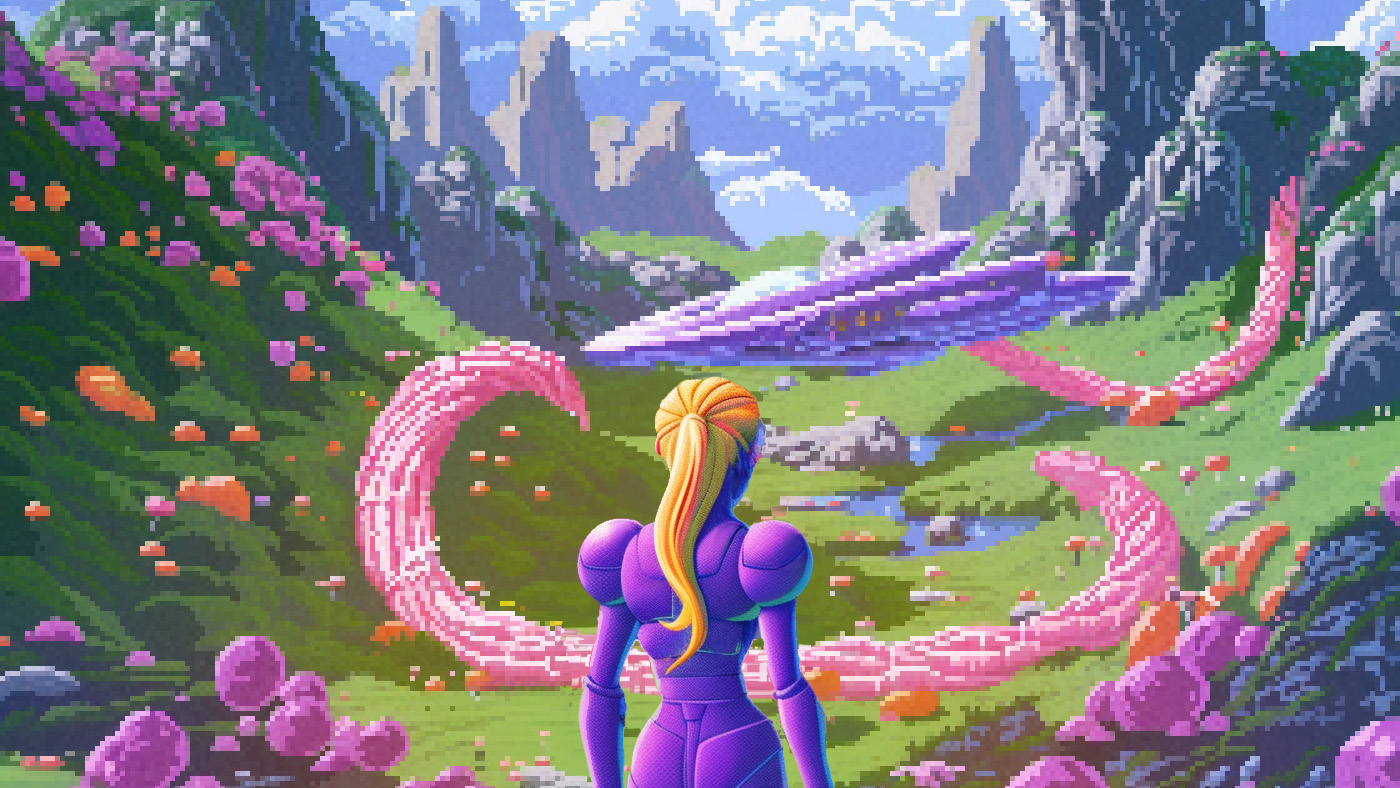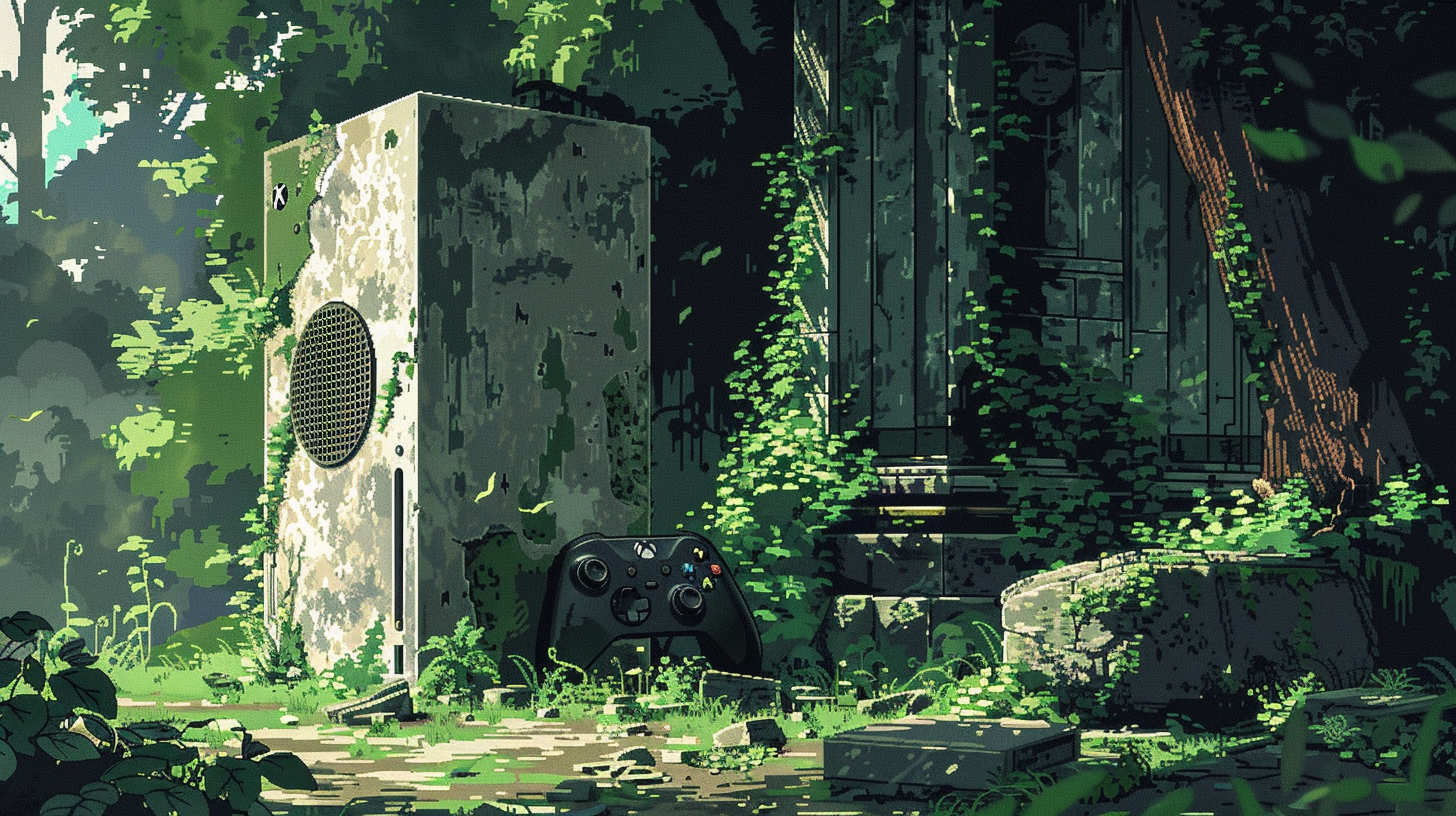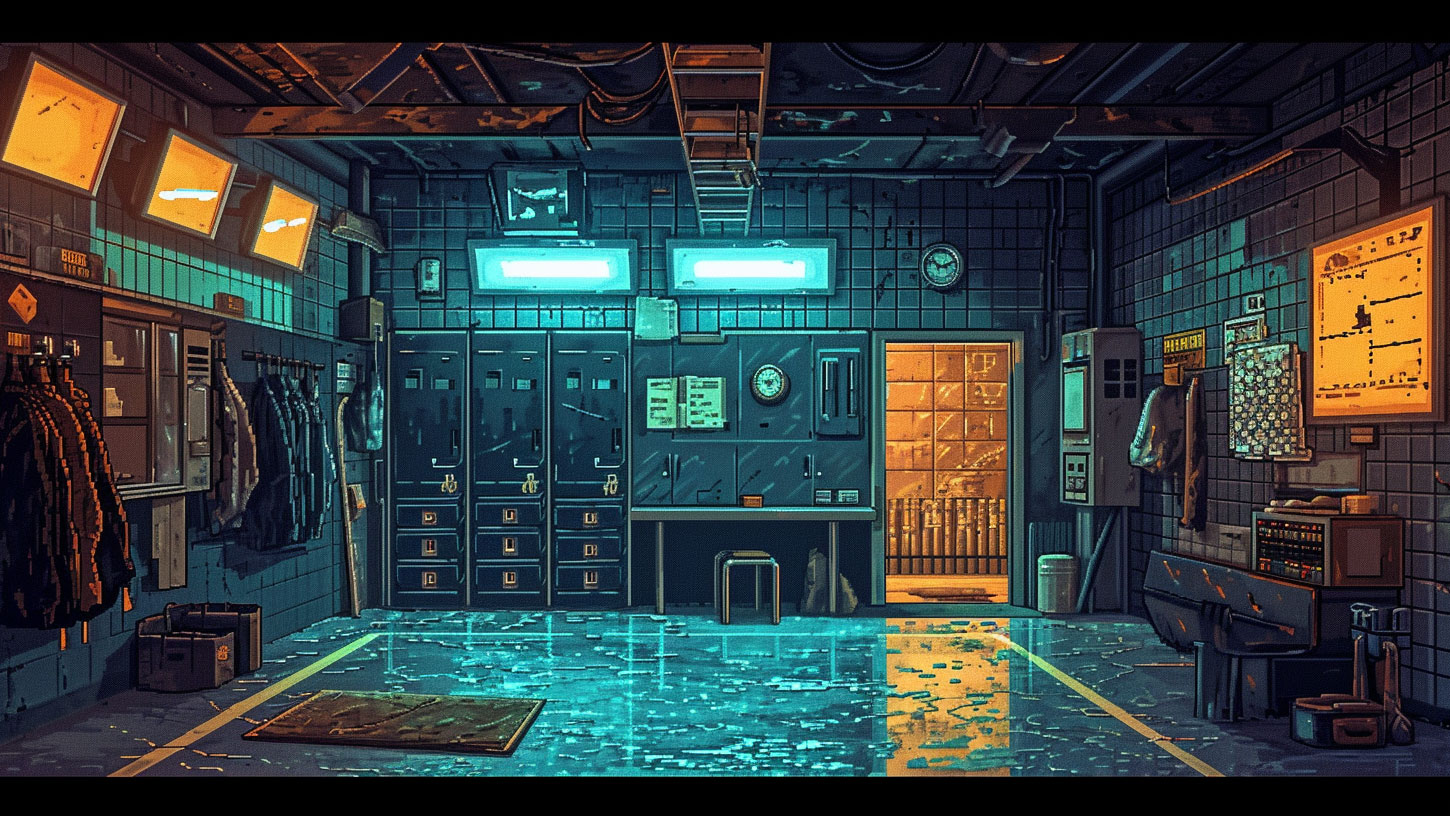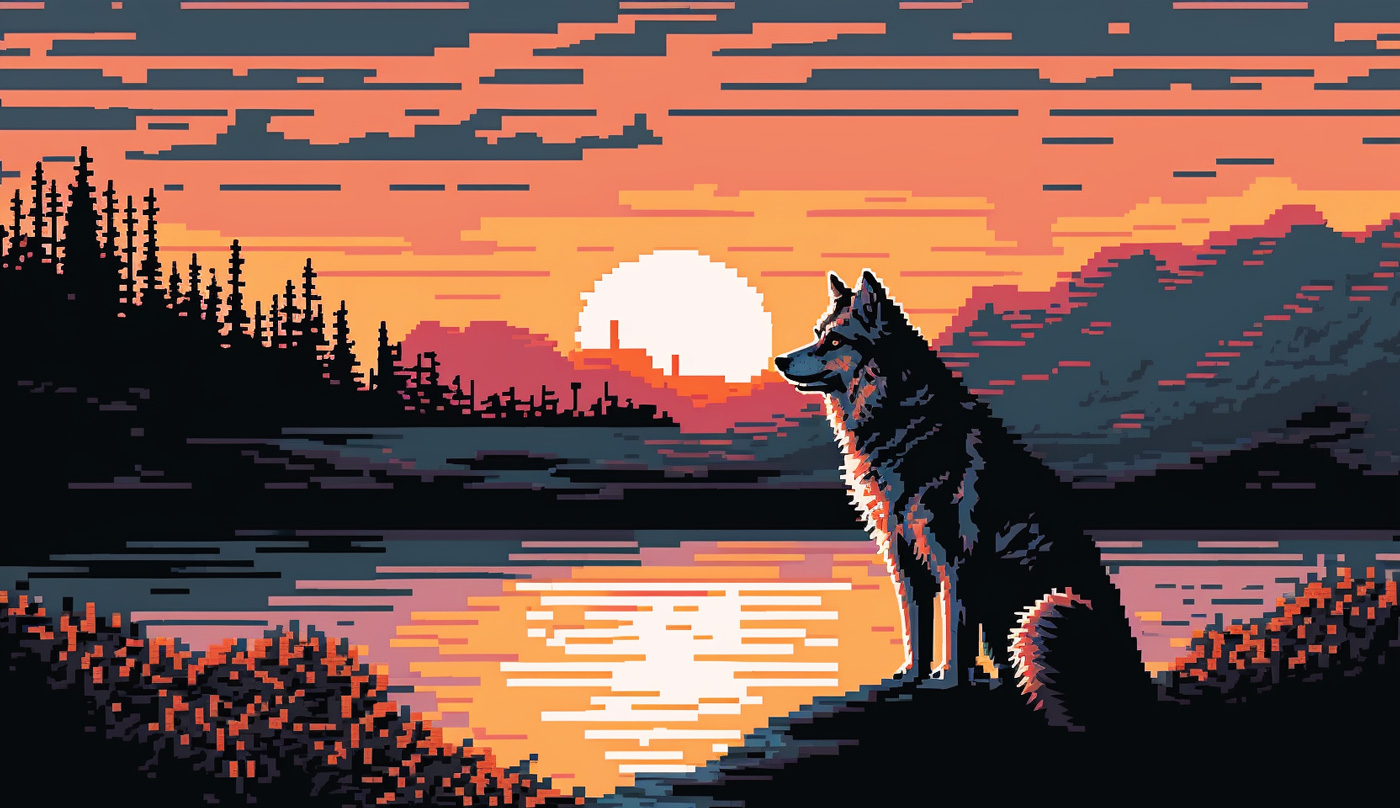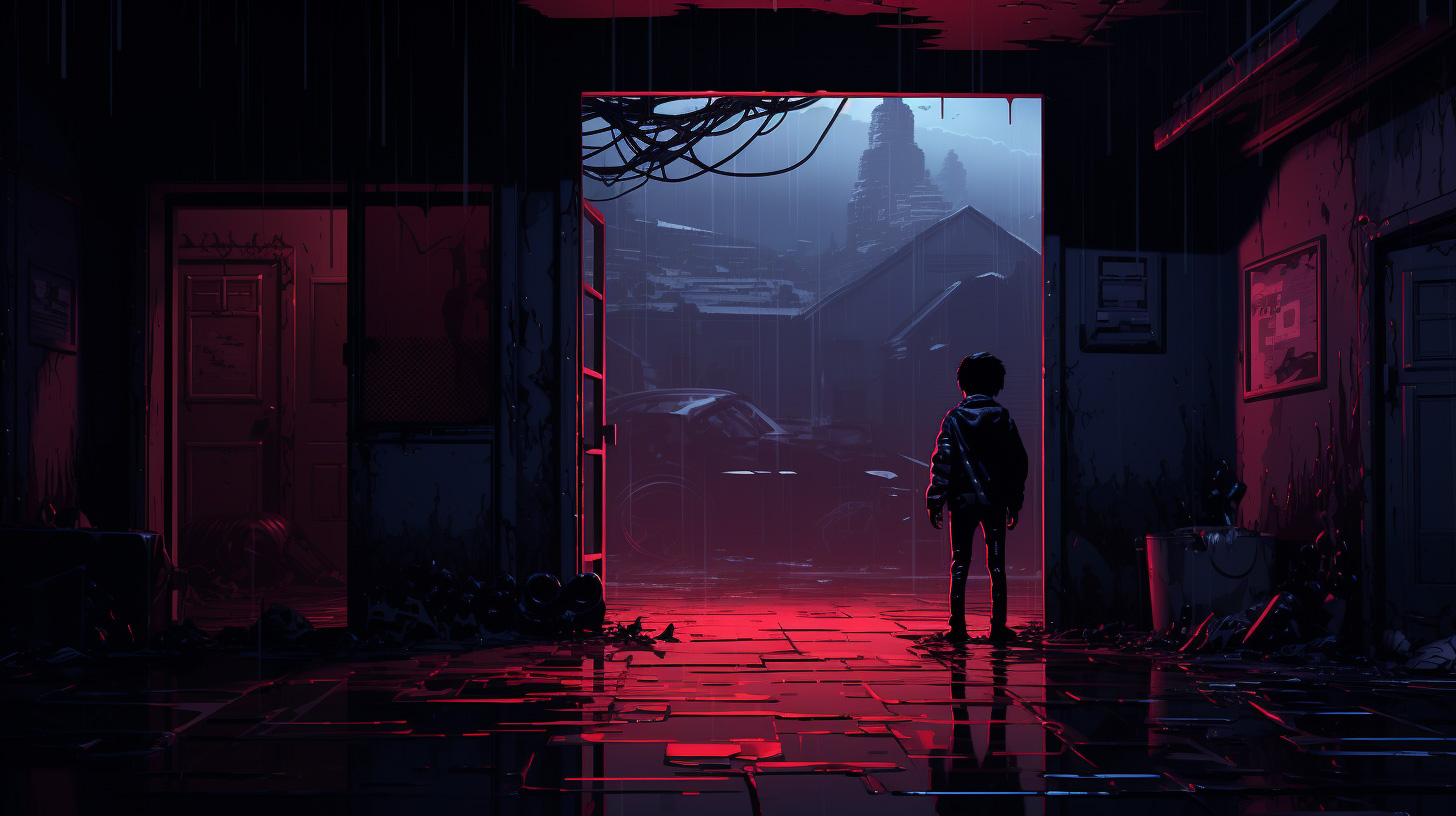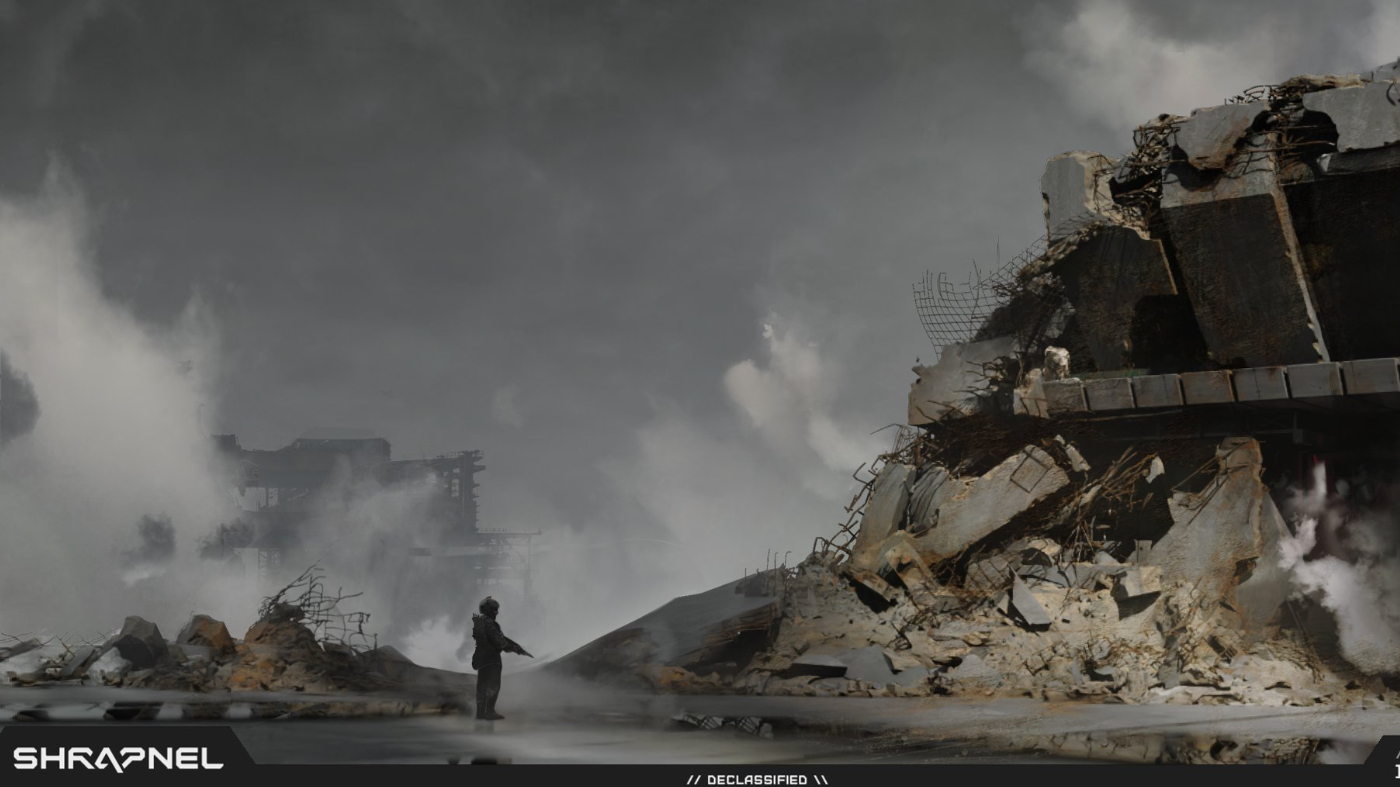Improved storytelling within games is driving game-based films and TV such as hit zombie spinoff The Last Of Us, according to the creators of Shrapnel’s live-action short.
Lael Rogers directed and Tony Fulgham wrote Solitarius Lupus, a 7:44 video (embedded below) that expands the world of upcoming blockchain shooter Shrapnel using real actors and locations.
The pair spoke with Polemos in an interview that dived into how they created a character and story in a gameworld that didn’t yet exist.
“I think games are changing. I think video games are becoming much more like movies,” Rogers says.
“From what I understand, the thing that people love about [the Playstation game] The Last Of Us is the story of The Last Of Us and how you are essentially immersed in a situation with real stakes and people that you care about.”

The HBO TV series based on the game is currently winning audiences and critical acclaim. Rogers compares the situation to the Resident Evil franchise.
“[The Resident Evil games] are awesome experientially, but there’s not really a compelling narrative … it’s really difficult to put into a movie. I like the Resident Evil movies, but there’s less to hold on to … I think video game writing has gotten phenomenal.”
Fulgham agrees, pointing to Red Dead Redemption 2.
“That was a game changer … [in] Red Dead Redemption 2 you are in a movie … it’s almost like you couldn’t even make a movie of that game that would even touch how good the game was … from what I know of The Last of Us, the game just set up a series perfectly.”
“I also think it’s interesting that The Last Of Us is doing so well as a TV show versus a movie,” says Rogers “I feel like adapting video games, which is a very different structure than film, maybe suits itself more to a TV show … they’re naturally longer, it’s not just one incident and it’s not just one story.”
In the beginning
Rogers and Fulgham started talking to Shrapnel’s creator Neon very early in the game’s formation – “two summers ago” – when key game elements had not been locked down.
As explained in this Polemos interview with Neon CEO Mark Long, the game story involves meteors raining down on earth, creating an uninhabitable zone where players fight it out for possession of the meteor material, known as Sigma.
But the Solitarius Lupus (“lone wolf”) writing team – which included colleague Peter Edlund – were working before Sigma had been thought up.
“We were making this at a time when they were discovering what the world of Shrapnel was. The two things were really happening in tandem: the game was getting developed and we were also identifying the main aspects of this story.”
From game to reality
The film’s story involves an unnamed “scavenger” – played by Lia Bass – who preys on teams of Operatives as they emerge from the uninhabitable zone, killing them and stealing their Sigma. In this way, the cashing-in dynamic central to the game is also a big part of the film.
But the short is not at all game-like, and spends minutes developing the scavenger as a real human, who must eat and even mend clothes to get by. The violence of the film’s conclusion is made more impactful because of its live-action, real world setting. Computer-generated imagery is kept to a minimum, and the main science fiction prop is the Sigma container.
This container – known in the game as the SCU and coincidentally now being released as an NFT – had to be built by Rogers and Fulgham’s team. Designs were sent from Neon and then 3D printed and assembled, but the process didn’t stop there.
“There were a lot of questions being asked … the iteration process [between film and games] is different. Like, when a Sigma Containment Unit has shit in it, and you pick it up, we’re going to see that, that’s a major part of the story, and [the game team] were like ‘ok, right, we actually have to move out of conceptual thinking into actual visualisation’,” says Fulgham.
Something to bounce off

Rogers and Fulgham say that making a movie based in a game world was easier than starting with a blank canvas.
“Having the foundational pillars of the world was great,” says Fulgham. “We didn’t have to invent massive plot points like that wall [the barrier around the zone]. That wall was already invented for us. We just needed to know where to put it and how to make it impactful. We got to really focus on the story.”
Aspects of the film reflect what you can do in the game. For example, there’s a sequence where the scavenger saws off a rifle butt, modding the weapon.
“All of the characters in this film very subtly represent the kind of player someone might decide to be. There are people who will play this game who just build stuff and sell it, right?”
Shrapnel’s blockchain integration revolves around attribution and payment for player-created maps and skins. While neither Rogers nor Fulgham are into crypto, they see the community and creative potential.
“I think [gaming] is the place where NFTs and blockchain could really shine … for lack of a better way to describe it, it’s another story beat … that takes you from fantasy world into your real life bank account, which is a little strange … and very exciting. I also see the potential for some really unpleasant offline behavior,” says Fulgham.
What happens?
Whether more films are made will depend on the reception of Solitarius Lupus, but the pair have plans and a story waiting to be told. Why, for instance, is the scavenger murdering and stealing Sigma and living in a dump?
“You’re really supposed to find that out in episode two … we’ve just witnessed that the scavenger is living in a crappy RV alone. And instead of just buying a new jacket, sewing up their jacket. So is it the money they’re after, or is there some other reason they’re going out and nicking Sigma?”
“You know, money is always only part of it when you’re doing something as seedy as camping out in an abandoned building and picking people off with a sniper rifle.”
Enjoy our reporting? Sign up for the Pharos newsletter and receive an update every week for free.



